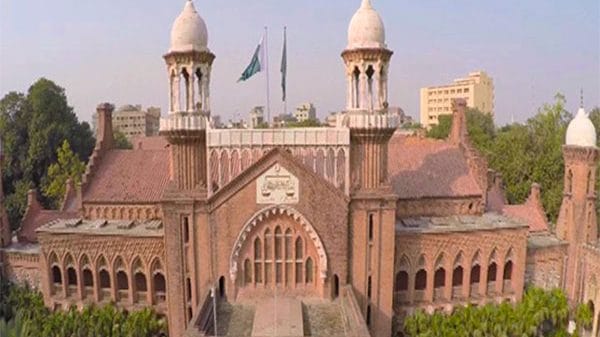New Delhi: Pakistan’s Ahmadiyya community and other minorities will not be able to legally acquire property, including inherited, if the property is owned by a Muslim. Recently, the Lahore High Court cited Sharia to deny an Ahmadi man his rights over a piece of land inherited from his father, a Muslim.
The case involved a dispute over the inheritance of an 83-kanal piece of land in Gojra, Toba Tek Singh district. The landowner had passed away, leaving his property to his children, including the Ahmadi man. However, a grandson of the deceased challenged the inheritance, claiming that his uncle, who identified as an Ahmadi, should not be allowed to inherit from a Muslim relative.
This legal precedent highlights the pattern of discrimination against Ahmadis in Pakistan, a country that is home to the world’s largest Ahmadiyya population. Ahmadis are prohibited from identifying as Muslims on official documents, and those who refuse to renounce their faith face legal challenges and persecution.
On Saturday, the Lahore court upheld the decision of two lower courts, stating that under Islamic law, a non-Muslim cannot inherit from a Muslim. Justice Chaudhry Muhammad Iqbal even cited Prophet Muhammad’s saying, as recorded in Sahih Muslim: “A Muslim does not inherit from a disbeliever, and a disbeliever does not inherit from a Muslim,” the judge said, as reported by Dawn.
The judge also retrospectively applied the provisions of Article 260(3) of Pakistan’s Constitution, which defines “Muslim” and “non-Muslim” for legal purposes.
Article 260(3) defines a “Muslim” as someone who believes that Muhammad is the final prophet. A “non-Muslim” includes individuals who belong to the Quadiani or Lahori groups (commonly known as Ahmadis) and those who identify as Bahá’í, Buddhist, Christian, Hindu, Sikh, or Zoroastrian.
‘Property is their right’
Lawyers ThePrint spoke to condemned the move, adding that such rulings make it easy to seize any property by declaring citizens traitors or infidels.
“Religion is a personal matter, but inherited property is their right, which should not be taken away under any circumstances,” Supreme Court advocate Shafiq Ahmad said.
Human rights activist and lawyer Yasser Hamdani, who works extensively for the rights of the Ahmadiyya community, labelled the decision to be in ‘utter violation of Article 20’ religious freedoms).
“This judgment is designed to further marginalise and persecute not just Ahmadis but all minorities in Pakistan. As far as Islamic law goes, this judgment seems to be following the dicta of that law but the problem starts when we bind a modern nation-state to medieval laws,” he added.
Hamdani also added that perhaps the man, born to Muslim parents, had chosen to convert to Ahmaddiya, which is not uncommon.
“Generally non- Muslims are not subject to Islamic law. As for becoming Ahmadi, Pakistani law allows for conversion out of (“official”) Islam contrary to the myth that Pakistan criminalises apostasy. To change your religion is a fundamental right under Article 20 and Pakistan’s passport forms allow for about 50 other choices of religion as well as becoming an atheist or an agnostic. Many people do convert to Ahmadiyya in Pakistan. They are brave people who take on the challenge of living in Pakistan in face of persecution,” Hamdani said.
Plight of Ahmadis in Pakistan
Ahmadis are considered heretics by mainstream Islamic groups, and are legally classified as non-Muslim by Pakistan’s 1974 constitutional amendment. This classification has led to a range of human rights violations, including restrictions on worship, the use of Islamic terminology, and the production of religious texts.
The community is even barred from voting unless they declare themselves non-Muslim, a move that contradicts their religious beliefs. In the 2024 general elections, Ahmadis boycotted the vote to protest their exclusion and the rising tide of religious intolerance in the country.
Further exacerbating their situation is the blasphemy law, which has been widely used to target Ahmadis. In the recent case of Mubarak Sani, an Ahmadi man arrested for distributing an exegesis of the Quran, inertially received a favourable judgment from the Supreme Court of Pakistan, which stated that criminal laws could not be applied retroactively. However, after substantial pressure from religious hardliners, the court reversed its decision.
(Edited by Prashant)







Will the international community take note of this? Will the UN put out a statement condemning this and calling for Pakistan to treat every citizen equally?
Just imagine for once, if this had happened in India – if an Indian court had ordered that property owned by a Hindu cannot be inherited by Muslims and Christians.
Pakistan is an excellent example of what happens when a nation is defined based on ethnicity, faith or culture. India would do very well to learn from this and stay away from this folly,